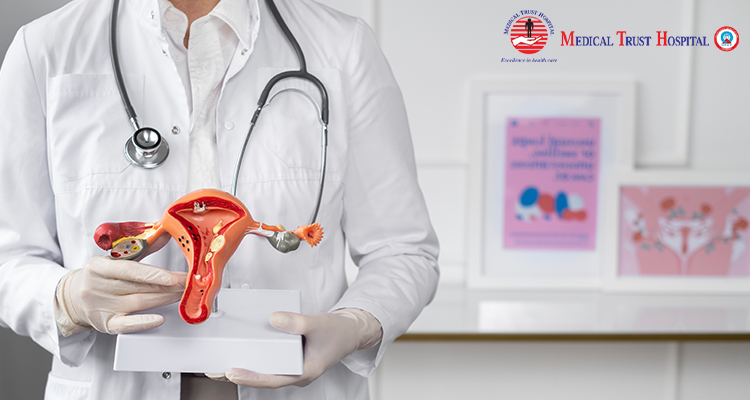Maintaining urological health is essential for a comfortable, active, and healthy life, yet it’s often overlooked until symptoms begin to interfere with daily routines. The field of urology encompasses a wide range of conditions related to the urinary tract, including the kidneys, bladder, ureters, and urethra—as well as the male reproductive system. These organs and systems play a vital role in eliminating waste, regulating body fluids, and contributing to reproductive function. In both men and women, urological conditions may stem from a variety of causes, ranging from lifestyle and hormonal changes to genetics and underlying medical disorders. While some issues, such as benign prostatic hyperplasia (BPH), are exclusive to men, others, like urinary tract infections or kidney stones, can affect anyone. Understanding these common conditions, recognizing the signs early, and knowing when to consult a urologist can make a significant difference in outcomes and quality of life.
In this blog, we’ll explore the most common urological problems in men and women, their causes, symptoms, and when to seek help from a specialist.

1. Urinary Tract Infections (UTIs)
Who it affects: Mostly women, but men can get them too.
Symptoms: Burning sensation during urination, frequent urge to urinate, cloudy or strong-smelling urine, pelvic pain.
UTIs are among the most common urological issues, particularly in women, due to the shorter length of the urethra. They are usually caused by bacteria entering the urinary tract. While most UTIs are treatable with antibiotics, recurring infections may indicate a more serious problem requiring a urologist’s evaluation.
2. Kidney Stones
Who it affects: Both men and women; more common in men.
Symptoms: Severe pain in the back or side, blood in the urine, nausea or vomiting, frequent urination.
Kidney stones form when minerals in the urine crystallize and clump together. Factors such as poor hydration, high salt intake, and genetics contribute to stone formation. Small stones may pass naturally, but larger ones may require medical or surgical intervention.
3. Urinary Incontinence
Who it affects: Common in women (especially after childbirth or menopause), but also affects men (especially after prostate surgery).
Symptoms: Involuntary leakage of urine, urgency, frequent nighttime urination.
Urinary incontinence can range from minor leaks during a sneeze or cough to sudden, uncontrollable urges to urinate. It can result from weakened pelvic floor muscles, nerve issues, or underlying medical conditions. Treatment includes pelvic exercises, medications, or minimally invasive procedures.
4. Benign Prostatic Hyperplasia (BPH)
Who it affects: Men, typically over 50.
Symptoms: Difficulty starting urination, weak stream, frequent urination, incomplete bladder emptying.
BPH, or an enlarged prostate, is a non-cancerous growth that can obstruct urine flow. While not life-threatening, it can significantly impact quality of life. Treatments range from lifestyle changes and medications to surgery in more severe cases.
5. Overactive Bladder (OAB)
Who it affects: Both men and women, more common with age.
Symptoms: Sudden urge to urinate, frequent urination, nighttime urination, urgency incontinence.
OAB is caused by involuntary bladder contractions and can disrupt daily life and sleep. Treatment options include behavioral therapies, medications, and sometimes nerve stimulation.
6. Prostate Disorders
Who it affects: Men.
Symptoms: Pelvic discomfort, painful urination, difficulty urinating, and blood in semen or urine.
Beyond BPH, men may also experience prostatitis (inflammation of the prostate) or prostate cancer. Early detection is vital, which is why regular screenings are recommended for men over 40 or those with a family history.
7. Pelvic Organ Prolapse
Who it affects: Women, especially after childbirth or menopause.
Symptoms: Pressure or fullness in the pelvic area, urinary leakage, trouble emptying the bladder.
This condition occurs when pelvic organs drop due to weakened muscles and tissues. Urologists and gynecologists often work together to manage and treat this issue, often through pelvic floor therapy or surgery.
When to See a Urologist?
Many people delay seeing a urologist until symptoms become disruptive, but early intervention can prevent minor issues from becoming serious health concerns. Urologists specialize in diagnosing and treating conditions related to the urinary system in both men and women, as well as male reproductive health.
You should consider seeing a urologist if you experience any of the following:
- Persistent or recurring urinary tract infections (UTIs)
- Blood in the urine (hematuria)
- Pain or burning during urination
- Difficulty urinating or a weak urine stream
- Frequent or urgent need to urinate, especially at night
- Kidney stones or severe side/back pain
- Incontinence or urinary leakage
- Erectile dysfunction or other male reproductive concerns
- Testicular or pelvic pain
- Abnormal prostate exam results
Regular urology checkups are especially important for men over 40, individuals with a family history of urological diseases, or those with chronic conditions like diabetes. If you’re noticing any unusual changes in your urinary or reproductive health, don’t wait—consulting a urologist early can lead to quicker diagnosis, effective treatment, and better outcomes.
Find Expert Urology Care at Medical Trust Hospital, Kochi
Urological health plays a vital role in your overall well-being, and recognizing the signs of potential problems early can lead to more effective treatment and better outcomes. Whether you’re dealing with recurring urinary issues, prostate concerns, or kidney-related problems, consulting a qualified urologist is the first step toward lasting relief.
If you’re looking for expert care, Medical Trust Hospital in Kochi is home to some of the best urologists in Kochi, offering advanced diagnostics, personalized treatment plans, and compassionate care. With a strong reputation in the field of urology, the hospital is dedicated to helping patients regain comfort, confidence, and control over their health. Don’t wait—schedule a consultation today and take the first step toward better urological wellness.